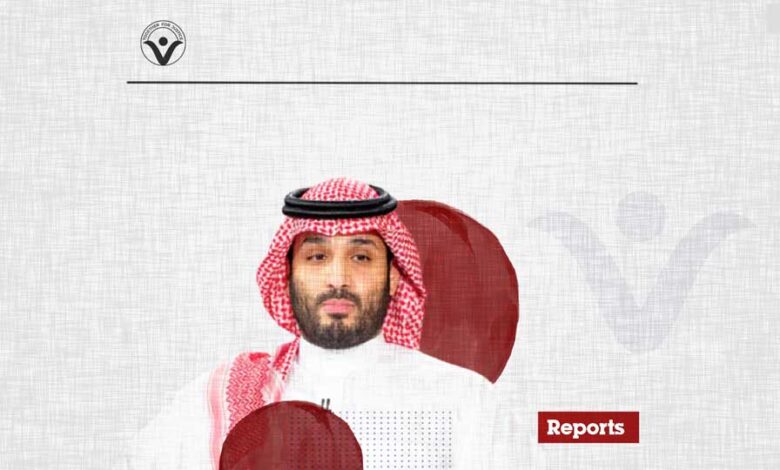Activists interpret MBS’s comments in interview as justifying ‘killing dissidents’

In his lengthy interview on state television earlier this week, Saudi Crown Prince Mohammed bin Salman has already drawn headlines, around his rhetoric against “religious extremists” and the interpretation of religious texts.
Middle East Eye (MEE) monitored the reactions of Twitter users about the mentioned interview with Saudi crown prince Mohammed Bin Salman.
MEE found that while some activists interpret crown prince’s comments in interview as justifying ‘killing dissidents’, others criticise his understanding of religious texts
During the 90-minute interview on Tuesday with state-owned Rotana TV, the de-facto Saudi ruler said he sought “good and special” relations with arch-rivals Iran, after reported secret talks were held this month.
Bin Salman also hinted at the sale of one percent of the state oil company Saudi Aramco to a major global company, believed to be from China.
But it was his comments on religion, in particular, that have caused a stir among activists and social media users.
‘Extremists to face full force of law’
The crown prince, often referred to by his initials MBS, spoke at length about the issue of religious extremism, and how it should be dealt with by the kingdom.
“Extremism in all things is wrong, and our Prophet Muhammad talked in one of his hadiths about a day when extremists will surface and he ordered them killed when they do so,” he said.
He went on to quote hadiths – recorded narrations of the sayings and actions of the prophet – which stated that nations had perished due to extremism in their religion.
The hadith which MBS cited does not emphasise or condone the killing of extremists, instead it states: “Beware of exaggeration (extremism) in religion, for those who came before you were ruined by exaggeration in religion.”
“Being an extremist in anything, whether in religion or our culture or our Arabhood, is a serious matter based on our prophet’s teachings, life experience and from the history we read,” MBS said.
He said that Saudi Arabia in particular had been a target for extremism and terrorism due to it being the location of Islam’s holiest sites, and that the problem had intensified between the 1950s and 70s, at a time of “socialist and communist projects” in the region.
“These people should not be representing our religion, nor our divine principles in any way, shape or form,” MBS said.
“Any person that adopts an extremist approach, even if he was not a terrorist, is a criminal and will face the full force of the law.”
‘Systematic approach of killing dissidents’
The crown prince’s comments on extremism were widely criticised on social media, and interpreted as a direct threat to dissidents and opposition figures.
Human rights researcher Abdullah Aloudh described the rhetoric as “a systematic approach of killing dissidents”. The activist’s father, renowned reformist scholar Salman al-Odah, has been imprisoned in the kingdom since 2017.
Journalist Ghadda Oueiss noted that Saudi journalist Jamal Khashoggi, who was killed by a Saudi hit squad at the Istanbul consulate in 2018, was previously referred to by the kingdom as an “enemy of the state”.
“Is this an admission that he killed the ‘extremist’ Jamal Khashoggi?” Oueiss asked of MBS.
Several social media users claimed that it was in fact the crown prince who was an extremist, citing the imprisonment of activists and scholars.
Some users took the opportunity to reshare a ruling made by a member of the Saudi Council of Senior Scholars, just three weeks before Khashoggi’s murder, which stated that those who disobeyed rulers deserved to be killed.
Activist Turki Shalhoub noted that MBS’s comments came just days after the Commission for the Promotion of Virtue and the Prevention of Vice, a Saudi religious authority, had republished a decree necessitating the killing of spies. The decree stated that spies colluding with “enemies” must be killed “even if he is Muslim”, because it “spreads corruption on the ground”.
To read full story on MEE website click here.
Shalhoub said he feared that there were plans “to commit major crimes in the coming days”, based on the justifications being “marketed”.
The 35-year-old prince has previously been accused of purporting to crack down on extremist clerics, while instead focusing his attention on reformist preachers.
READ MORE: Saad Al-Otaibi Suffers in Saudi Prisons for the Fourth Year for Rejecting Normalisation




